Manasseh Cutler (1742-1823) graduated from Yale (1765), and worked as a schoolteacher, store clerk, and an attorney. He was minister to the Congregational Church in Ispwich, Massachusetts (1771-1823). Cutler served as military chaplain for multiple American units during the Revolutionary War. This sermon was preached by Cutler in 1814 in Massachusetts, using Ephesians 3:20-21 as the basis.

A
CENTURY DISCOURSE,
DELIVERED IN
HAMILTON,
ON
THURSDAY, OCTOBER 27, 1814.
BY MANASSEH CUTLER, LL.D.
PASTOR OF THE CHURCH.
The publication of the following discourse needs apology. After service, on the preceding Sabbath, the congregation were reminded that the next Thursday would close a century from the establishment of the church and society; and it was proposed to notice the day by a religious exercise in the afternoon. A discourse was prepared, merely for the purpose of bringing into view local concerns during that period, which would be interesting only to the people to whom it was delivered, and without the least thought of publication. Afterwards, very unexpectedly, an application was made, represented to be the unanimous desire of the people, that it might be printed. Under existing circumstances, a compliance could not be refused.
It is therefore devoutly inscribed to the CHURCH and RELIGIOUS SOCIETY in Hamilton, by their sincere and affectionate servant in the gospel.
THE PASTOR.
A
SERMON.
Ephesians iii. 20, 21.
Now unto him that is able to do exceeding abundantly above all that we ask or think, according to the power that worketh in us; unto him be glory in the church, by Jesus Christ, throughout all ages, world without end. Amen.
With this ascription of glory to God the Apostle concludes a most devout and fervent prayer for the church. This epistle was probably written with a view to other churches besides the one at Ephesus, to whom it was addressed. Through the whole of it is a flow of holy affection to his Christian brethren, and ardent solicitude for the establishment and prosperity of the church. Being a prisoner at Rome, he could not go, as formerly, to establish churches by his personal preaching and exertions; but his affectionate desire for their prosperity was not abated. Whilst suffering imprisonment in defence of the Gentile churches, he encourages them to be steadfast in their Christian profession, with an assurance of his constant supplications for them at the throne of grace. I bow my knees unto the Father of our Lord Jesus Christ, of whom the whole family in heaven and earth is named; that he would grant you, according to the riches of his glory, to be strengthened with might, by his spirit in the inner man; that Christ may dwell in your hearts by faith; that ye, being rooted and grounded in love, may be able to comprehend, with all saints, what is the breadth, and length, and depth, and height; and to know the love of Christ, which passeth knowledge, that ye might be filled with all the fullness of God.
These servant petitions he closes with an expressive and emphatical ascription of glory to God: Now unto him that is able to do exceeding abundantly above all that we ask or think, according to the power that worketh in us; unto him be glory in the church, by Jesus Christ, throughout all ages, world without end. Amen. What enlarged and exalted expectations may this ascription of adoration and glory to God excite in our minds! What inducement to render praise and glory to him for what he has done for the church! And what encouragement to supplicate his blessing in future time! For he is able to do, not only all that had been asked, but above all—exceedingly abundantly above all that could be asked, were we to enlarge our desires and multiply our petitions to the utmost. To this God of power and grace unspeakable, the Apostle most earnestly desired that glory, adoration and praise should be continually rendered in the church, by Jesus Christ, throughout all the ages of time, even to the end of the world; and closes this rapturous act of devotion by affixing his solemn. Amen.
If we attend to the history of the Christian church, we shall find it replete with signal instances of divine power and goodness, for its protection and preservation. It is founded on a rock, and the gates of hell shall never prevail against it. In every age, under the government of Him who never eases to watch over its interests, events are taking place which well deserve religious notice; and merciful interpositions to be recognized, which claim the highest ascriptions of praise and glory to God. There are particular periods of time, when it may be highly proper to take a retrospective view, and trace back the footsteps of Providence in years past. It may not only gratify an inquisitive and contemplative mind, but excite thankful acknowledgments of distinguished blessings, and lead to serious reflection and useful improvement.
Such, it appears to me, is the present time with regard to the Church and Religious Society in this town. It is, this day, an hundred years since this church was embodied, and a minister ordained to be the pastor.
That we may suitably notice and improve this period of time, it is my intention to make a few general observations with respect to the state of the Christian church within a century past; and then to call your attention, particularly, to a retrospective view of passing events and the state of this church and society, during the hundred years that terminate on this day.
Within a century past, the church of Christ has not been assailed by open and bloody persecutions, as it had been in preceding ages. It has had, however, to contend with most inveterate enemies—enemies who, by secret artifices, by subtle machinations, and unwearied labours, have attempted to suppress the Christian religion, and banish from the world the Christian name. In no age of the church, since the promulgation of the gospel, has infidelity made such secret progress, and, at length, raised its brazen front with so much boldness and expectation of success. The abettors of atheism, deism and infidelity had made such progress, that they reduced their schemes to system, and gained an alarming influence over the minds of men, especially in the higher ranks of life. Secret infidel societies, holding correspondence with each other, were formed; and to poison the minds, and induce people of all grades and conditions to reject the Bible, immense numbers of infidel books, pamphlets, small tracts, and even ballads and songs, were printed. These were industriously spread among all classes of people in many parts of Christendom. From among these infidels were the principal actors in the late French revolution—a scene highly favourable for propagating their principles. The standard of infidelity, undisguised, was now triumphantly erected. The Convention decreed that there was no God, and declared the nation to be a nation of infidels. They held that there was no future state of existence—no account to be rendered after this life—and death was only an eternal sleep. All forms of religion were suppressed, and houses of public worship shut up, or appropriated to other uses. The church of St. Genevieve was changed into a pagan temple. In this temple, with supercilious parade, they performed their heathen orgies. A common prostitute, personating the Goddess of Reason, received the worship of both the Convention and the infatuated multitude. So inveterate was the enmity against the very name of Jesus Christ, that he was styled the WRETCH; and these are said to have been watch words—Crush the wretch! Strike, but conceal your hand.
In the most gloomy seasons, the church has often experienced the most signal interpositions. The great Head of the Church has been pleased to look down upon the languishing vine which his own right hand had planted, and to save it from the ravages of inveterate foes. While the faith of many was shaken, and believers were trembling for the ark, the friends of Zion were awakened to a fervent zeal in vindicating the religion of Jesus. An unusual spirit of inquiry into the divine authority and inspiration of the scriptures was excited. Of that large class of people who take the Bible on trust, without attending either to the external or internal evidences of its authenticity, great numbers became bewildered by the books and company of infidels; but, by candid, unprejudiced examination, found their doubts removed, and faith established.
Still, whatever may have been the happy effect of these researches (which has been believed by some to have been very great and extensive) the efficient means of counteracting infidel philosophy has been the extensive spread of the holy scriptures. The bible carries its own evidence with it. Infidelity has been met, not merely with clear reasoning and strength of argument, which sophistry can always evade; but with the formidable weapon of the bible itself—the Bible without note or comment. One of the most distinguishing interpositions of Providence in favour of the church, which, perhaps, the world has ever witnessed, has been the establishment of Bible Societies. These invaluable, benevolent institutions, designed for the purpose of distributing the scriptures, gratis, among the poor and destitute everywhere, have been encouraged and supported with a zeal which excites astonishment. Emperors, kings and princes have become their patrons; Christians of all denominations, people of all grades and conditions in life, have cheerfully contributed to this noble purpose. As infidels had formed societies, collected funds, printed and distributed books, they have been met in the same way, by the establishment of societies, and collecting immense sums for printing the scriptures in different languages, for the accommodation of Christian and Heathen nations. The parent of these institutions, the British and Foreign Bible Society, embraces in its extensive plan every nation upon earth. Already, by its influence and operations, thousands and hundreds of thousands have had the bible put into their hands. It has astonished, rejoiced and animated the Christian world. While Bible Societies, on a more limited scale, have been multiplying in Europe, the flame has caught in our own country. One, or more, has been established, with the same benevolent views, in every State in the Union.
These societies intermeddle with no wars, but the Christian warfare-contend with no enemies, but the enemies of Christ and his church. Amidst the angry conflicts of contending nations, their exertions and their charities are extended, without partiality, to all the human family. Let the potsherds strive with the potsherds of the earth, but let the friends of Zion, in faith and hope, look forward, by the light of prophetic scripture, to the approaching reign of the Prince of Peace. Though the earth be removed, and though the mountains be carried into the midst of the sea; there is a river, the streams whereof shall make glad the city of God. The word of the Lord shall have free course, and shall be glorified.
The happy effects of these exertions must extend to future ages. That the Christian religion will be universally known, and its blessings felt in every part of the habitable world, we believe from the bible; but the way and means by which it is to be accomplished, is beyond our comprehension. Yet the pleasing hope presses into our minds, that this glorious day begins to dawn—that the day when all nations shall enjoy the holy scriptures in their own language—and of the ingathering of the Jews, with the fullness of the Gentile world, is drawing near.
While infidelity was so rapidly spreading in Europe, its baneful influence was sensibly felt in our own country. In some parts of the United States, its champions were bold and open. A small number of infidel societies were established. Its spread was much apprehended by many pious people, and their fears greatly excited. Yet, without any very apparent means, it pleased God to check its progress. Infidels there still are, and infidels there will be, in the ordinary ages of the church. But whilst we have it to lament that so much irreligion and so many vices have prevailed during the past century, we have likewise cause for gratitude and thankfulness to God, that there has been generally in our churches a respectful and serious attention to religion. In many places there have been hopeful revivals and reformations; and in some, large in-gatherings into the church of Christ. In all our churches there have been some of the wandering sheep of Christ’s flock, one after another, gathered into his fold.
Within a century from this time, new churches have been greatly multiplied in the United States. Since the establishment of this church, there have been about six hundred new churches formed within this Commonwealth; and some of them consist of a very large number of communicants.
But I will detain you no longer with general remarks. The principle purpose of our present meeting was to take a concise review of the most material concerns of this religious society, from its establishment to the present time.
So remarkably uniform have been the state and general concerns of this church and society, as far as has come to my knowledge, that there have been few very interesting occurrences for an hundred years. Yet there has been much, in the course of providence, that may be brought into view, well worthy our attention and religious improvement.
The town of Ipswich, on the 22d of May, 1812, voted their consent, that “when their brethren in the Hamlet, so called, should have erected a meeting house, and called an orthodox minister to preach the gospel to them, they should be freed from further charge in the maintenance of their ministers, and be accounted a precinct.”
On the 14th of October, 1713, an act of incorporation from the General Court was obtained, allowing them to be a distinct and separate precinct. In the course of this year the first meeting house was built; the dimensions of which were, 50 feet in length, 28 in breadth, and 20 feet post. What the number of inhabitants were at this time cannot be accurately ascertained, but most probably between seven and eight hundred.
In January, 1714, Mr. Samuel Wigglesworth was invited to preach as a candidate, and on the 12th of October following, a church covenant was agreed to and privately signed. At the same time Mr. Wigglesworth was elected their Pastor. On the 27th of the same month an ecclesiastical council was convened, consisting of the Re. Elders and delegates of the first and second churches in Ipswich, and of the churches in Wenham, Rowley and Topsfield. The church having been regularly embodied by the council, it was styled the third church of Christ in Ipswich. After reading the church covenant publicly to the assembly, the council proceeded to ordain their Pastor elect. The greater part of this newly gathered church were members dismissed and recommended from the first and second churches in Ipswich, and the church in Wenham. When formed, the number was 58; of whom 26 were males, and 32 females.
Their Pastor, the Rev. Samuel Wigglesworth, was possessed of very respectable talents—in his sentiments calvinistical—in the strain of his preaching, evangelical, instructive and practical. Solemn and unaffected in his manner, he commanded attention, and supported the character of an able and sound divine. Amiable and exemplary—respected and beloved, he filled up a long, peaceable and useful ministry. He departed this life on the 3d of September, 1768, in the 80th year of his age, having almost completed the 54th year of his ministry. His public and parochial labours were continued nearly to the close of his life.
Under his ministration many made public profession of their religion, and received admission into the church. Considerable numbers of communicants were added, at different times. Very remarkable awakenings and hopeful conversions succeeded the great earthquake in 1727. This memorable earthquake occurred on the 29th of October, (being the Sabbath) a little before eleven in the evening. 1 Several small shocks were felt for some months after. The next Wednesday was observed as a day of humiliation and prayer; and a solemn, well adapted sermon was preached by Mr. Wigglesworth, and, at the request of the people, was published. In his dedication, dated January 29, he observes, that “the awful occasion of this discourse is not yet entirely removed.” And he adds, “Since the earthquake, there has been a large addition to the church, which I question not but many of them shall be saved. The spirit of reformation seems to be poured out, in plentiful measure, upon all sorts of persons among us; and especially a considerable number of our young persons seem disposed to flee from youthful lusts and vanities, and to flee to Christ and his ordinances as a cloud, and as doves to their windows.”
On my first coming to this town, I recollect to have heard aged people relate, from their own knowledge, many interesting particulars, respecting this reformation. They mentioned the solemn and deep impression made generally upon the minds of the people, especially on the youth and those in early life—a surprising engagedness in all to attend public worship, and occasional religious meetings. Considering the large additions to the church in a short time after, we cannot doubt that God was pleased to accompany this awakening and alarming providence with special influences of his spirit and grace. By the church records, it appears, that, from the last of November to about the middle of February, there were admissions on every Sabbath, except on one day. On some Sabbaths, the number was exceedingly large, for so small a society. On Dec. 10th, seven were admitted; on the 24th, seventeen; on the next Sabbath, eleven; on the following Sabbath there was only one; but on the two next there were four, each day; on the next there were eight; and on the next (4th Feb.) there were fifteen. In four months there were eighty-seven, and in somewhat more than a year, one hundred, added to the church.
It is to be much regretted, that my worthy predecessor kept no record (or none to be found) after the year 1742, or beginning of 1743. To serious, reflecting people it will be desirable to know the number of communicants, baptisms and deaths for an hundred years, but it cannot be accurately ascertained. Were the number of inhabitants, at the time of the incorporation, known, a tolerable calculation could be made by taking average numbers. It has been supposed that the number of people has been nearly stationary. Being mostly farmers, the emigrations (consisting principally of young people) and the deaths have equaled the number of births. This appears probable, as the number of inhabitants by the last census (1810) was only 780, and as the number of baptisms seems to have varied very little for sixty or seventy years.
From the time the church was formed to the year 1742 (28 years) there were 326 members admitted, and 631 baptisms. Taking the average numbers for the following 26 years, there were, during the 54 years of my predecessor’s ministry, 560 admitted to communion, and 1203 baptisms. No record of deaths was found in the church book; but taking the average of deaths for the 43 years of my ministry for data, being nearly 12 annually, the number of deaths in 54 years would be 648. In the interval between Mr. Wigglesworth’s death and my ordination (three years), there were 2 communicants admitted, 75 baptized, and it is presumed, 36 deaths. In the last 43 years there have been 122 admitted into the church, 988 baptisms and 512 deaths. Agreeably to this computation, which can only give a probable idea of the numbers for the 54 years, there have been, by adding the number which first composed the church, 736 communicants, 2266 baptisms, and 1196 deaths in the hundred years.
Since the forming of the church, there have been seven officiating deacons. Of the two first elected, one lived to a great age, the other only a few years, but his successor died in old age. The two next in succession lived to an advanced period of life. They were succeeded the two deacons who still survive. 2
Agreeably to the preceding computations, one third more people, in this period of time, have gone down to the silent grave, than are now living. Your grand parents, your fathers, your mothers, our brothers, sisters, friends and neighbours, where are they? Do they live forever? No; they are gone the way from which they will not return. What an assembly are now sleeping in yonder grave yard! In a less period of time, every one of us—let it be remembered—every one of us must be added to this assembly.
Attention to these enumerations will convince us, that there was more of a sense of religion among the people in the former, than in the latter part of this century. Greater additions were made to the church from year to year. In looking over these records, I was surprised at the frequent instances of men and their wives joining the church at the same time. Many young people were admitted, but it seems to have been rare that one of the heads of a family came forward and made a profession of religion, without the other. It has not been so in latter time. Few instances have occurred for a number of years past. Was it not, that the importance of gospel ordinances were more sensibly felt; that heads of families were more deeply convinced that they could not live religious lives without a profession of religion;–a more impressive conviction of the duty of uniting in a public dedication of themselves to God in covenant, and setting before their children so desirable an example? Was it not that there was more family religion—family prayer—family instruction? And was there not more of union and joint resolution, that as for them and their houses they would serve the Lord?
During the time my predecessor kept a record, there were large numbers who recognized he baptismal covenant, and gave up their children to God in baptism. In the first ten years of his ministry, the number of baptisms were from twenty to thirty annually; and continued with little variation to the year 1742; so that there could not have been many children that were not baptized. In the ten first years of my ministry, the annual baptisms were from twenty-four to thirty-five; and so continued, though with more variation in different years, until a few years past. It was considered by pious people forty years ago to be exceedingly wrong for parents to withhold their children from this ordinance; and often they expressly enjoined it on their children, on their entering into the family state, not to neglect this duty. But, alas! my friends, how is it now? How greatly has this ordinance been disregarded for some years past! In the two last years, the number was only five, in each year. How great the number of unbaptized persons now, compared with former years!
Is this to be imputed to our great declination in religion? Is our moral state so much worse than in years past? Are the people become so much more indifferent to gospel ordinances? It is not, I am persuaded, because the right of infant baptism is doubted; but from the want of a proper understanding, and just sense of this duty. If infants are the proper subjects, and may be brought within the privileges, of the covenant, then it is the indispensable duty of parents, intelligently and uprightly, to devote them to God in baptism. Our Saviour expressly required that children should be suffered to be brought to him. Suffer little children to come unto me, and forbid them not; for of such is the kingdom of God. He was much displeased with his disciples for rebuking those who brought them. Christian baptism was not then instituted; yet the right and the duty of devoting children to God, after it was instituted, maybe clearly inferred from these words of our Lord, and he might have intended a reference to it. Those who then brought them to Christ, must have done it with desire and expectation of spiritual blessings. And is he not able to do as much for them now, as he was then? Were he now on earth, where are the parents that would refuse to carry their children to him? And why not carry them to him, now he is in heaven, by a solemn dedication, in the ordinance of baptism?
You believe children are the subjects of salvation, and you would tremble at the thought of excluding them from it; and can you exclude them from the right of baptism? When they are sick, do you not pray, and desire the prayers of others, for them, that they may recover; or, if removed by death, that their souls may be saved? And yet can you refuse to give them up to God in this ordinance? If you doubt your own right to give them up in this solemn manner, how an you think of living in such a state of impiety and irreligion? Can you refuse your consent to the terms of the gospel covenant? Have you no regard to the due regulation of your families? Family education and order are important means of grace, and, if suitably maintained, other means will be more likely to be successful. Can you then feel unwilling to lay yourselves under (voluntary) obligations to give your children a religious education, and to bring them up in the nurture and admonition of the Lord?
Not long before the decease of the Rev. Mr. Wigglesworth (in August, 1768) the present Dr. Hopkins, of Salem, was invited to settle as his colleague, but declined the invitation. After his decease, the church continued destitute for three years. The candidates employed appear not to have been many. On the 6th of March, 1769, Mr. Daniel Johnson was invited to settle, who gave a negative answer. On the 8th of January, 1770, Mr. Benjamin Brigham received a call, but did not accept it. On the 16th of October following, Mr. Jonathan Searle was invited to settle, who likewise declined the offer. The last was your present unworthy pastor, who received ordination on the eleventh day of September, 1771; and whom God has been pleased to continue in the ministerial office 43 years.
At that time, the communicants of the church were 68, of whom 27 were males, and 47 females. Of these communicants, only two, a male member and his wife, are now living. Additions in following years were gradual, and less frequent than in the earlier periods of the church. In some yea there were a considerable number, and in some there were none. But in the latter part of 1799 and beginning of 1800, we were favoured, as we trust, with manifestations of the powerful influences of the Holy Spirit, in calling up the attention of very considerable numbers. Many were awakened to enquire, with solicitude, what they should do to be saved? And numbers to make a public profession of their faith and hope. It seemed to be a time of refreshing from the presence of the Lord. The greater part were young people, but some in the middle, and in advanced periods of life. Admissions into the church were, on several days, in considerable numbers. Before the communion service (24th of Nov.) fifteen were admitted—at the next communion there were three, the next nine—and the next there were six—at others there were smaller numbers. But at four communions in succession, thirty-three were added to the church. Since about that time, we have relapsed into the former state of coldness and indifference. The ways of Zion have mourned because so few travel therein. At the present time the church consists of 73 members, of whom 28 are males and 45 females. Of the females, several have removed into other towns, whose relation to the church has not been transferred.
The house, which was at first erected for public worship, having become inconvenient and much decayed, in the year 1762 this commodious house, in which we this day present ourselves before the Lord, was built on nearly the same spot. It is constructed on somewhat larger dimensions, being 60 feet in length, 44 in. width, and 26 feet stud; and has been admired for its just proportions and pleasing appearance. Having been lately well repaired, it affords a hopeful prospect of remaining a convenient temple for the worship of the MOST HIGH for many years. Thus God, in his great goodness, has been pleased to continue to us the visible tokens of his presence for an hundred years. May He mercifully grant, that in this house his spiritual presence may delight to dwell.
For the greater convenience and advantage in managing their municipal concerns, the people made application to the Legislature, and on the 20th of June, 1793, obtained an act of incorporation, forming them into a town, by the name of Hamilton. This separation from the ancient and highly respecteable town of Ipswich was a transaction, in which the inhabitants of both felt themselves deeply interested. In accompanying this desirable object, every proceeding of the people was conducted with entire unanimity. Altho’ the pecuniary condition appeared to be large, it was promptly and cheerfully paid. And let it also be noticed, with peculiar satisfaction, that the unpleasant feelings excited in the minds of any of our brethren in Ipswich appear to have very happily subsided.
In taking this review of the century which closes with this day, it has been my intention to confine myself principally to the ecclesiastical concerns of this church and religious society. On this cursory retrospection of passing events, many reflections rush upon the mind, which time will not permit me to notice. I must, however, beg your patience while some of them are suggested.
The preservation of this church and society in uninterrupted peace and harmony for an hundred years, claims our sincere praise and thanksgiving to God. May our hearts, warmed with gratitude and love, unitedly offer up ascriptions of glory to Him, whose watchful care and tender mercy have been extended to this church and people during this period of time.
While many religious societies have been rent by divisions among themselves, and divided and separated by intermeddling sectaries of various descriptions and denominations, this society has been happily preserved from any disturbances of this kind. Under the ministration of my worthy predecessor the people discovered no disposition to contend on the ground of religious speculations and opinions. His uniform strain of instructive, evangelical and useful preaching united them in sentiment, and guarded them against an itching fondness for novelties. Steady habits were then established, and have happily been transmitted down to the present time.
In the management of civil and municipal concerns, great unanimity has very uniformly prevailed. In few, perhaps in no society, has there been less of suits at law—unnecessary litigations—or bitter party contentions. While human nature remains as it is, there will be occasional difference of opinions and temporary disagreements; but neighbourly kindness, candour and friendship have undoubtedly been strong traits in the character of this society from the beginning.
In confirmation of the prevailing candid and peaceable disposition of the people, I must mention an event which rarely happens. Two ministers have supplied the pulpit for an hundred years, except a short interval between the death of one, and the invitation of the other. That their lives should be continued so long is to be wholly ascribed to the sustaining power and mercy of God. But separations too often occur from other causes, besides a removal by death. In few societies, I believe, have two ministers lived, and in succession continued their ministerial labours, for a century. It certainly reflects credit on the friendly disposition of the society.
For myself—I cheerfully embrace this occasion to tender to this Church and Society my sincere thanks for the candour and forbearance you have exercised towards me; and for the many instances and tokens of affection, I have received during my ministry.
Since our union in this sacred relation, we have seen troublesome times. We have been subjected to many privations and difficulties. I have found myself, at times, in perplexed and trying circumstances. But in no situation has your friendly attention been withdrawn. Marks of kindness and respect, by the donations of a number of individuals, have relieved present wants, and claim my grateful acknowledgments.
In frequent reviews of my ministerial labours, I find deficiencies enough to humble me to the dust. I have no lament that no more success has attended my feeble exertions. Sure I am that your best, your eternal interests have lain with weight upon my mind. My conscience bears me witness, that it has been my earnest prayer, and all my desire, to bring to your view and impress upon your hearts, the most essential truths and doctrines of the gospel salvation: To preach to you a crucified Saviour—to persuade you to rest on that sure foundation which God has laid in Zion—to exercise that faith by which the just do live—and to follow after that holiness of heart and life, without which no man shall see the Lord. Whatever success may have attended these humble endeavours to promote the glory of God, to advance the interests of the Redeemer’s kingdom, and your own best good, let it all be ascribed to the riches of free grace and mercy.
The time is at hand, when your kindness to me, and my labours with you, must cease forever. My period of life, having arrived to threescore years and ten, is enough to teach me, that my days upon earth must very shortly be numbered. But I have another monitor, placed hourly before me:–the distressing disorder with which I have been long exercised, 3 and which I find increasing upon me, admonishes me that a few hours may close the scene. Many times, I have had reason to apprehend only a few breaths more remained. Often, under the pressure of this complaint, I have been sustained in the services of the sanctuary to my own astonishment. I think I can say, it is good for me that I have been afflicted. Called so constantly to familiarize my mind with the near views of eternity, it has had a tendency, I trust, to strengthen a faith and hope which removes the fear of the last enemy.
Thus far it has pleased God to lengthen out the span—but nature must fail—the time is near. Although life may be protracted a little longer, I feel, that on this occasion I am taking a parting leave of you, my respected and beloved people,–that I may, with propriety, on this day—bid you a long—a most endearing and affectionate Farewell.—The tongue that now speaks, shortly will cease to move—the heart that now throbs with affectionate concern for your eternal well-being, will be cold in death and this worthless body you will deposit in the dust.
I commend you to God and the word of his grace, unto him who is able to do exceeding abundantly above all you can ask or think. When you find yourselves destitute of a minister, may the great Shepherd take you under his gracious protection, and provide for you an able and faithful pastor, who shall feed you with the bread of life, and give to every soul his portion in due season. In all your concerns, seek light and direction from above-cultivate the true spirit of the gospel—and may the God of peace be with you, and bless you.
May this church see far more glorious days in the century now begun, than in that which is just closed; may great additions be made of those that shall be saved—and may it be savoured with the presence of Him who will be glorified in the church throughout all ages, world without end.
I had wished to have been more particular in this part of my address, but the time, so long protracted, forbids.—I will only add—that though we must part, we shall all meet again—meet, on that great day of the Lord, when I must render an account how I have preached, and you must give account how you have heard—when the righteous Judge will pass sentence, and award our destiny, in the ages of eternity. Solemn meeting! Awful day! O that we may then meet with joy, and be permitted to inherit the kingdom prepared from the foundation of the world—and to unite with the redeemed in all ages of the church, in ascriptions of blessing, and honour, and glory, and power, unto Him that sitteth upon the throne, and unto the Lamb forever and ever. Amen.
Endnotes
1 It is said to have happened about 40 minutes after 10, P.M.—the air clear—sky serene, and perfectly calm. It approached with a heavy rumbling—at first, compared to the roar of a blazing chimney—at last, to the rattling of carriages driven fiercely on pavements. It was observed, by those that were abroad, that as the shock passed under them, the surface of the earth sensibly rose up, and then sunk down. The violence of the shock was such as to cause the houses to shake and rock, as if they were falling to pieces; doors, windows and movables made a fearful clattering; the pewter and china were thrown from the shelves; stone walls, and the tops of some chimneys, were shaken down; in some places, the doors were unlatched and burst open, and the people in great danger of falling. Its duration was supposed to be about two minutes, and its course from N. W. to S. E. It was known to extend to the river Delaware S. W. and to the Kennebeck N. E. but its greatest violence seems to have been at Newbury, where the earth opened, and threw up several loads of a fine sand and ashes. Great changes took place in some wells, springs and streams of water. Vide Memoirs Amer. Acad. Vol. i. p. 265.
2 The two first Deacons were Deacon Matthew Whipple and Deacon John Gilbert, chosen Nov. 9, 1714. Deacon Matthew Whipple officiated 50 years, and was succeeded by Deacon Nathaniel Whipple, who officiated 45 years, and deceased at the age of 89. His successor is the present Deacon Benjamin Appleton, who has been in office 4 years. Deacon Gilbert lived only 9 years, and was succeeded by Deacon John Thorn, who continued in office 35 years. His successor was Deacon John Patch, who sustained the office 31 years, and died at 90 years of age. He was succeeded by the present Deacon Matthew Whipple, who has been in office 20 years.
3 The asthma, for fourteen years.
Since returning home, I have been reading again in our family Bible some of the passages which foretold this night. . . . We miss the spirit of Christmas if we consider the Incarnation as an indistinct and doubtful, far-off event unrelated to our present problems. We miss the purport of Christ’s birth if we do not accept it as a living link which joins us together in spirit as children of the ever-living and true God. In love alone – the love of God and the love of man – will be found the solution of all the ills which afflict the world today.
Through Jesus Christ the world will yet be a better and a fairer place. This faith sustains us today as it has sustained mankind for centuries past. This is why the Christmas story, with the bright stars shining and the angels singing, moves us to wonder and stirs our hearts to praise. Now, my fellow countrymen, I wish for all of you a Christmas filled with the joy of the Holy Spirit, and many years of future happiness with the peace of God reigning upon this earth.
Though winter is upon us, the Christmas tree flourishes as a symbol of everlasting life. That life and light, of course, is Christ, whose birth to Mary fulfilled a prophecy of joy and salvation. Out in the fields where the shepherds slept, the angels broke the silence by singing, “Glory to God in the highest, and on Earth peace, goodwill toward men.” We best serve this story by serving one another . . . by showing it is more blessed to give than to receive, especially when so many of our fellow citizens are without jobs and in need. For Christmas is not a distant historical event. It is a
spirit, always bringing us closer to each other and closer to the peace of which the angels sang. So on behalf of my wife, Debbie, our two girls, my 11 brothers and sisters, and all the Boehners, I wish one and all a very Merry Christmas.

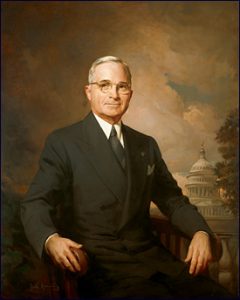 Since returning home, I have been reading again in our family Bible some of the passages which foretold this night. . . . We miss the spirit of Christmas if we consider the Incarnation as an indistinct and doubtful, far-off event unrelated to our present problems. We miss the purport of Christ’s birth if we do not accept it as a living link which joins us together in spirit as children of the ever-living and true God. In love alone – the love of God and the love of man – will be found the solution of all the ills which afflict the world today.
Since returning home, I have been reading again in our family Bible some of the passages which foretold this night. . . . We miss the spirit of Christmas if we consider the Incarnation as an indistinct and doubtful, far-off event unrelated to our present problems. We miss the purport of Christ’s birth if we do not accept it as a living link which joins us together in spirit as children of the ever-living and true God. In love alone – the love of God and the love of man – will be found the solution of all the ills which afflict the world today.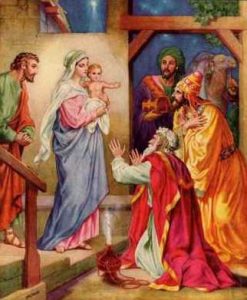 Through Jesus Christ the world will yet be a better and a fairer place. This faith sustains us today as it has sustained mankind for centuries past. This is why the Christmas
Through Jesus Christ the world will yet be a better and a fairer place. This faith sustains us today as it has sustained mankind for centuries past. This is why the Christmas  Though winter is upon us, the Christmas tree flourishes as a symbol of everlasting life. That life and light, of course, is Christ, whose birth to Mary fulfilled a prophecy of joy and salvation. Out in the fields where the shepherds slept, the angels broke the silence by singing, “Glory to God in the highest, and on Earth peace, goodwill toward men.” We best serve this story by serving one another . . . by showing it is more blessed to give than to receive, especially when so many of our fellow citizens are without jobs and in need.
Though winter is upon us, the Christmas tree flourishes as a symbol of everlasting life. That life and light, of course, is Christ, whose birth to Mary fulfilled a prophecy of joy and salvation. Out in the fields where the shepherds slept, the angels broke the silence by singing, “Glory to God in the highest, and on Earth peace, goodwill toward men.” We best serve this story by serving one another . . . by showing it is more blessed to give than to receive, especially when so many of our fellow citizens are without jobs and in need. 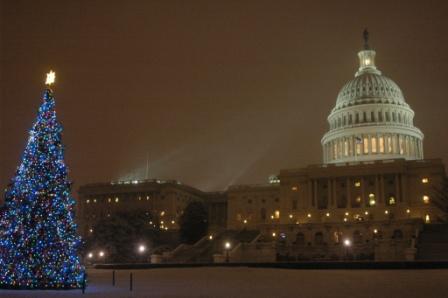 spirit, always bringing us closer to each other and closer to the peace of which the angels sang. So on behalf of my wife, Debbie, our two girls, my 11 brothers and sisters, and all the Boehners, I wish one and all a very Merry Christmas.
spirit, always bringing us closer to each other and closer to the peace of which the angels sang. So on behalf of my wife, Debbie, our two girls, my 11 brothers and sisters, and all the Boehners, I wish one and all a very Merry Christmas.
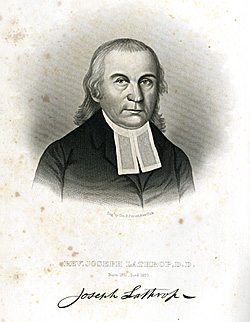 (1731-1820) Biography:
(1731-1820) Biography: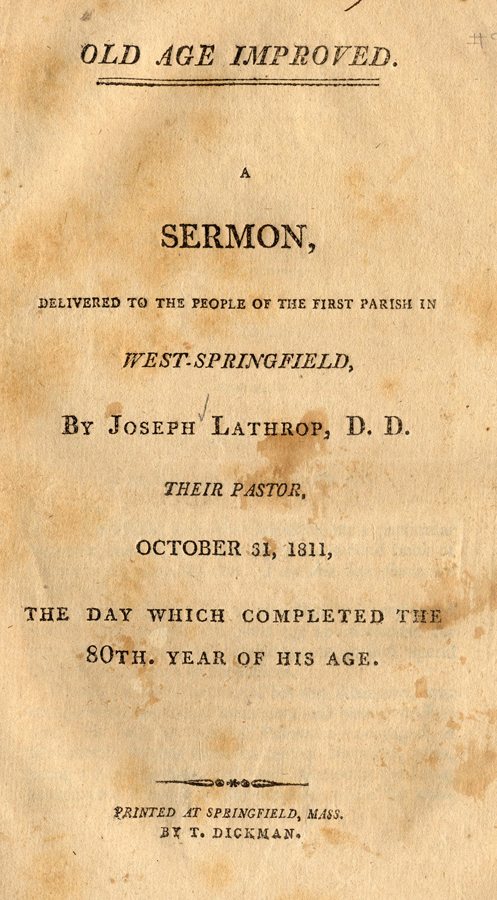
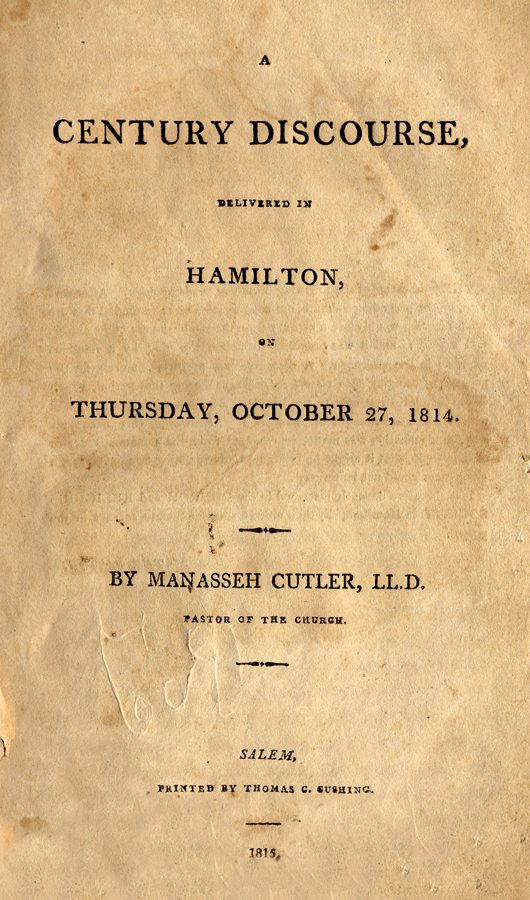
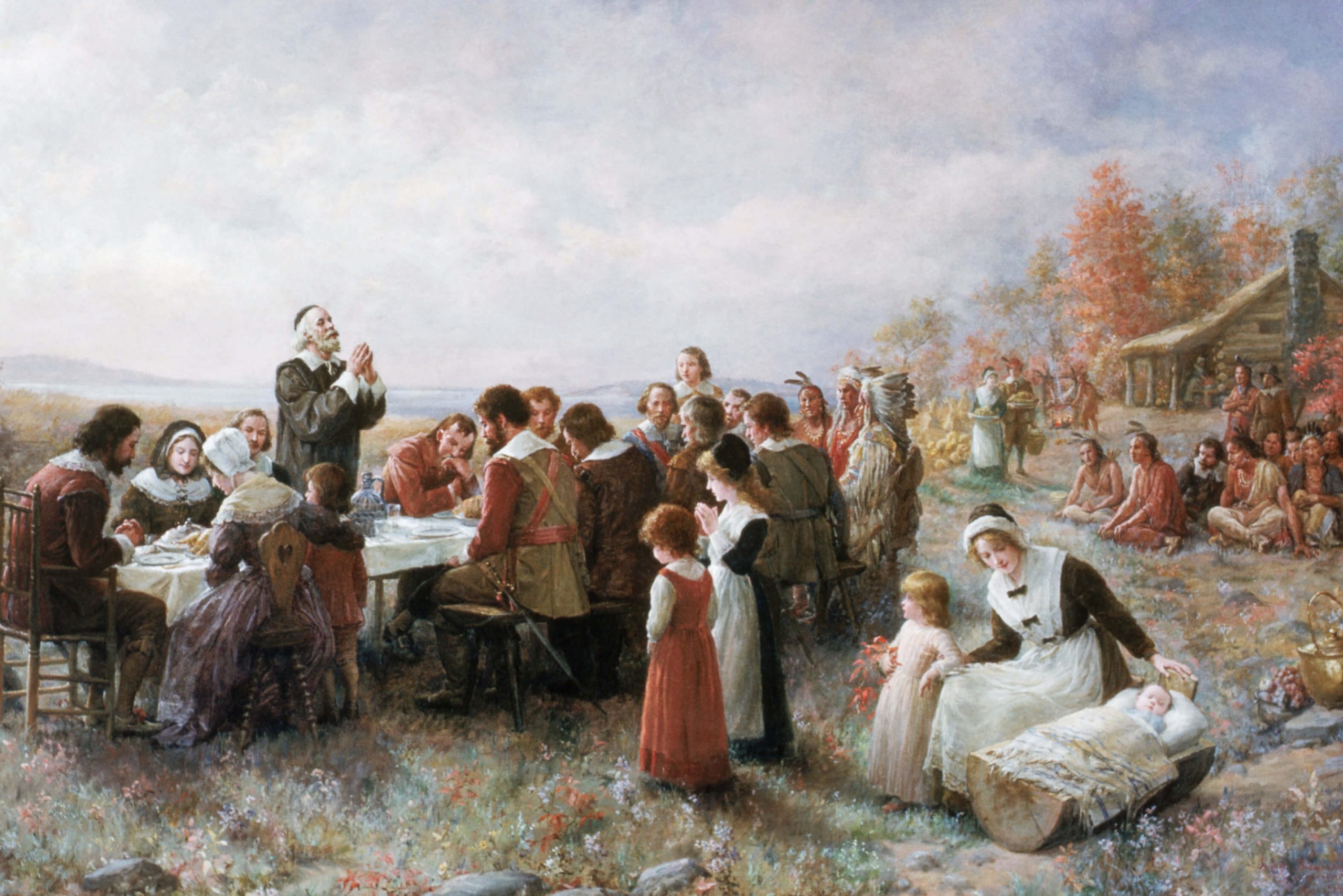

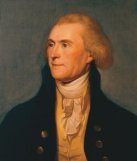

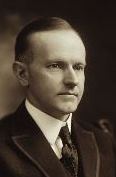 No one can examine this record and escape the conclusion that in the great outline of its principles the Declaration was the result of the religious teachings of the preceding period. . . . They are found in the texts, the sermons, and the writings of the early colonial clergy who were earnestly undertaking to instruct their congregations in the great mystery of how to live. . . . Placing every man on a plane where he acknowledged no superiors, where no one possessed any right to rule over him, he must inevitably choose his own rulers through a system of self-government.
No one can examine this record and escape the conclusion that in the great outline of its principles the Declaration was the result of the religious teachings of the preceding period. . . . They are found in the texts, the sermons, and the writings of the early colonial clergy who were earnestly undertaking to instruct their congregations in the great mystery of how to live. . . . Placing every man on a plane where he acknowledged no superiors, where no one possessed any right to rule over him, he must inevitably choose his own rulers through a system of self-government.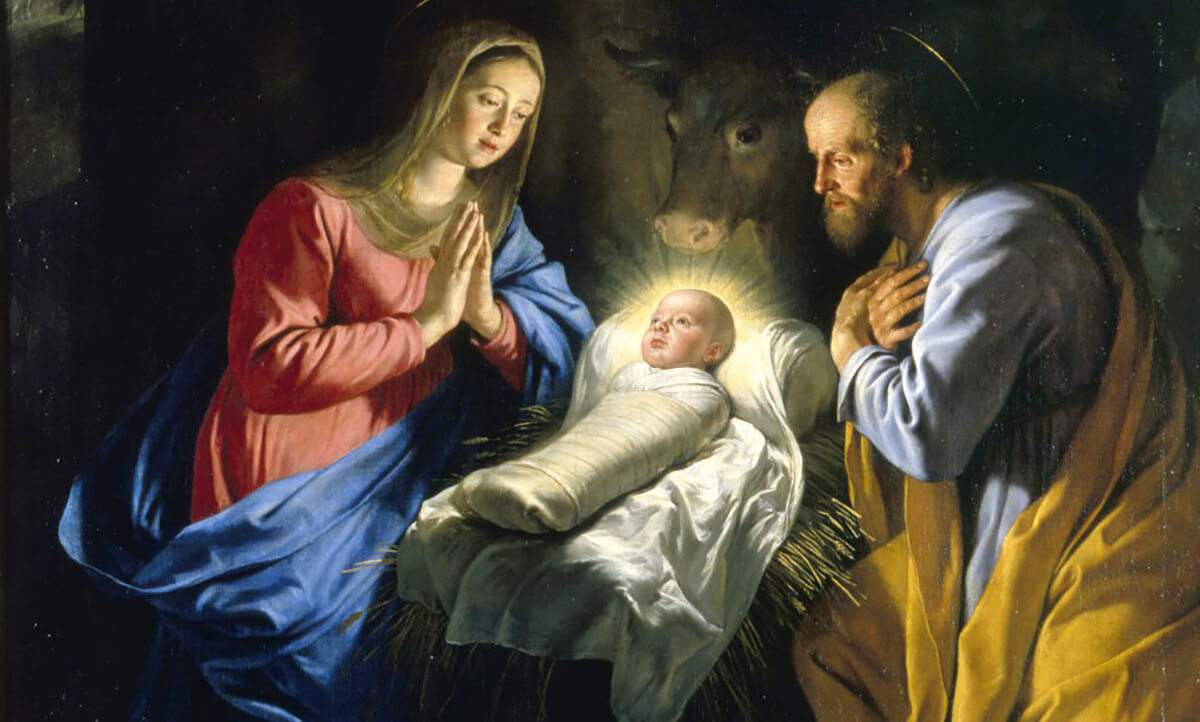
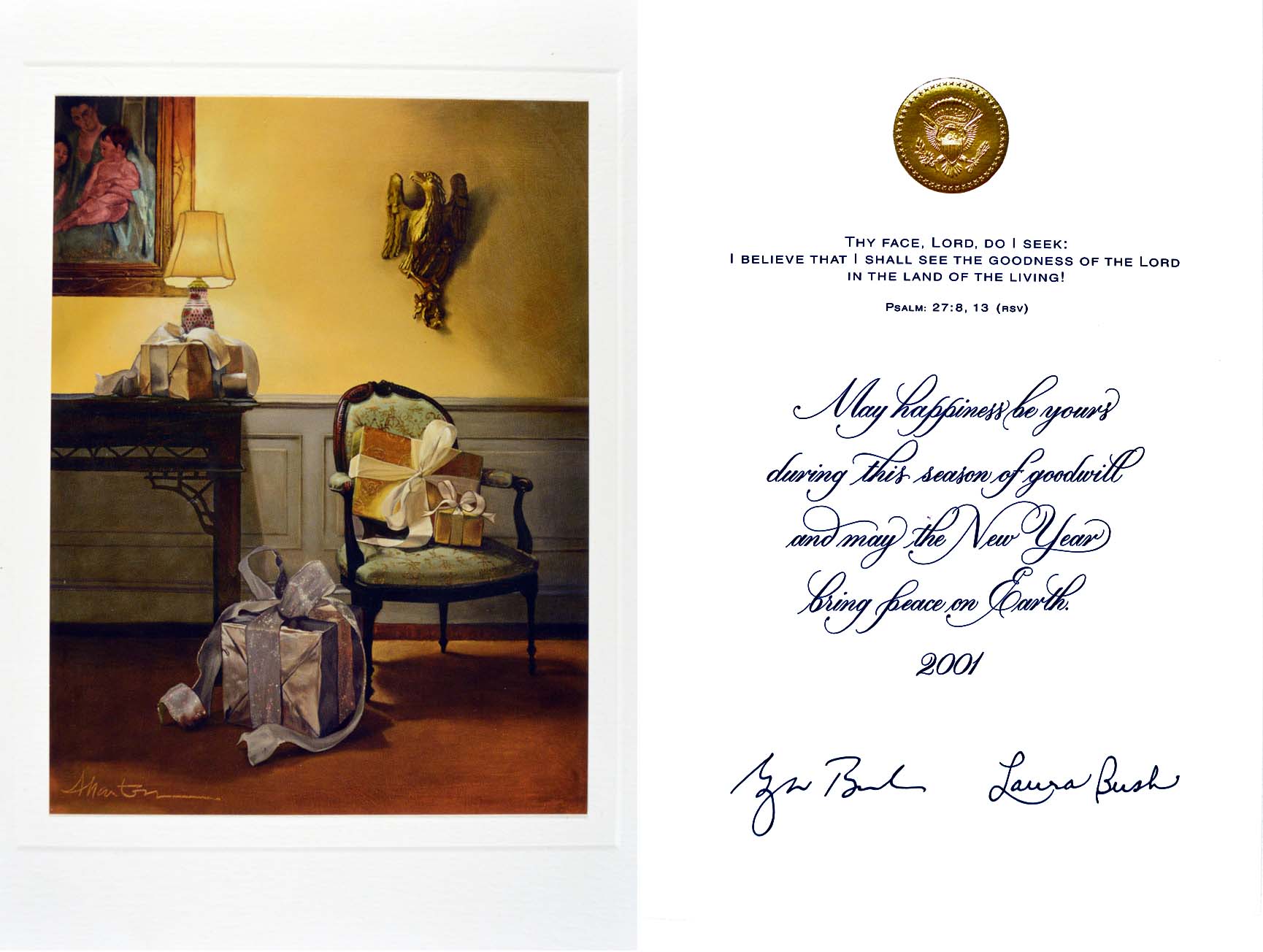
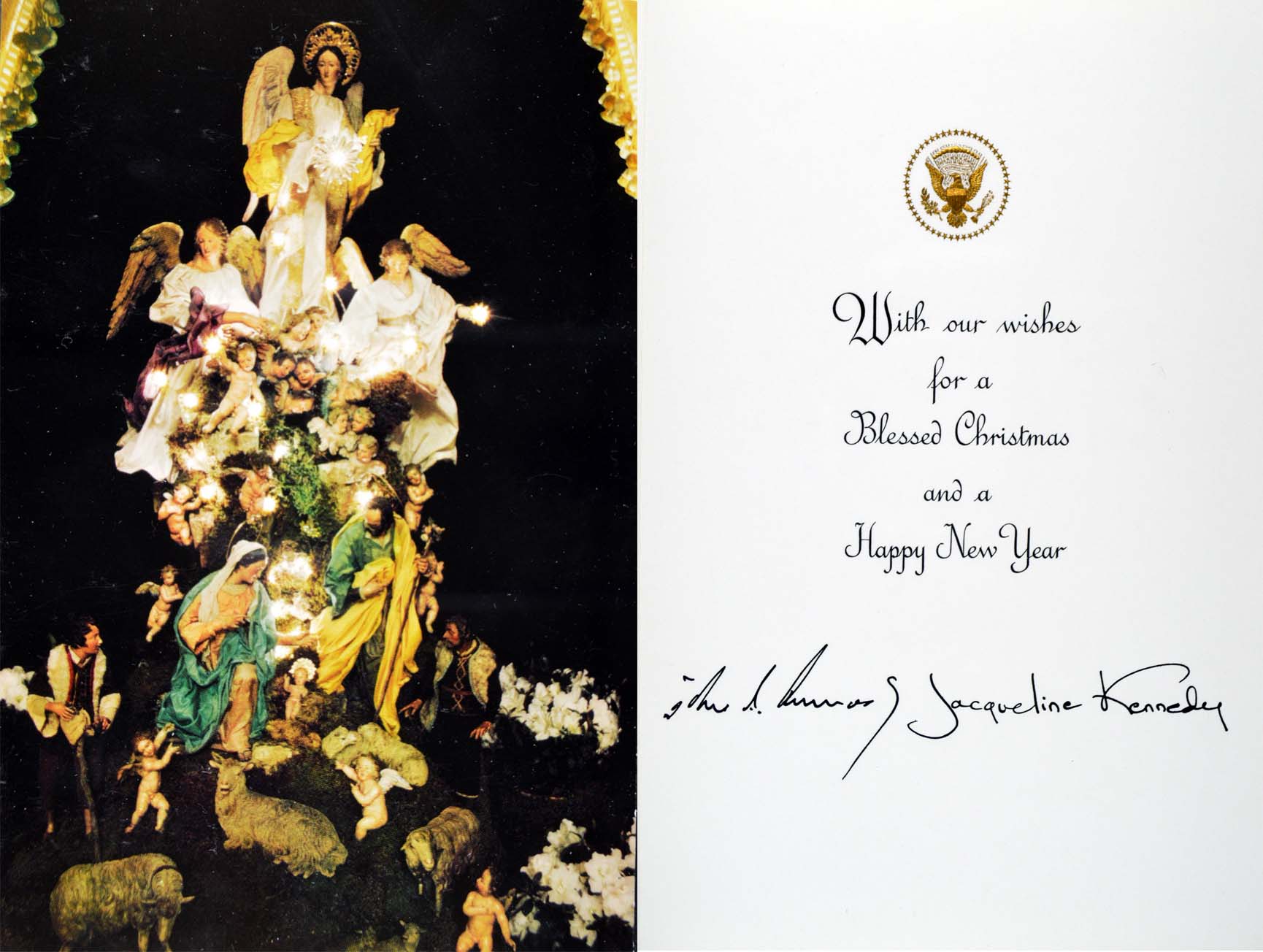
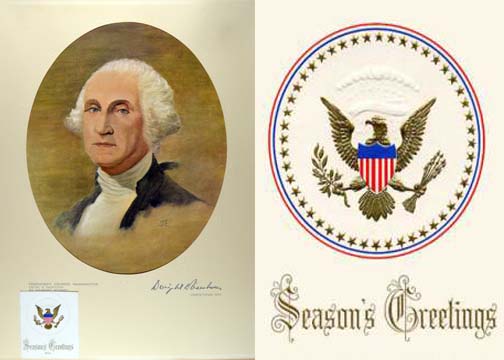

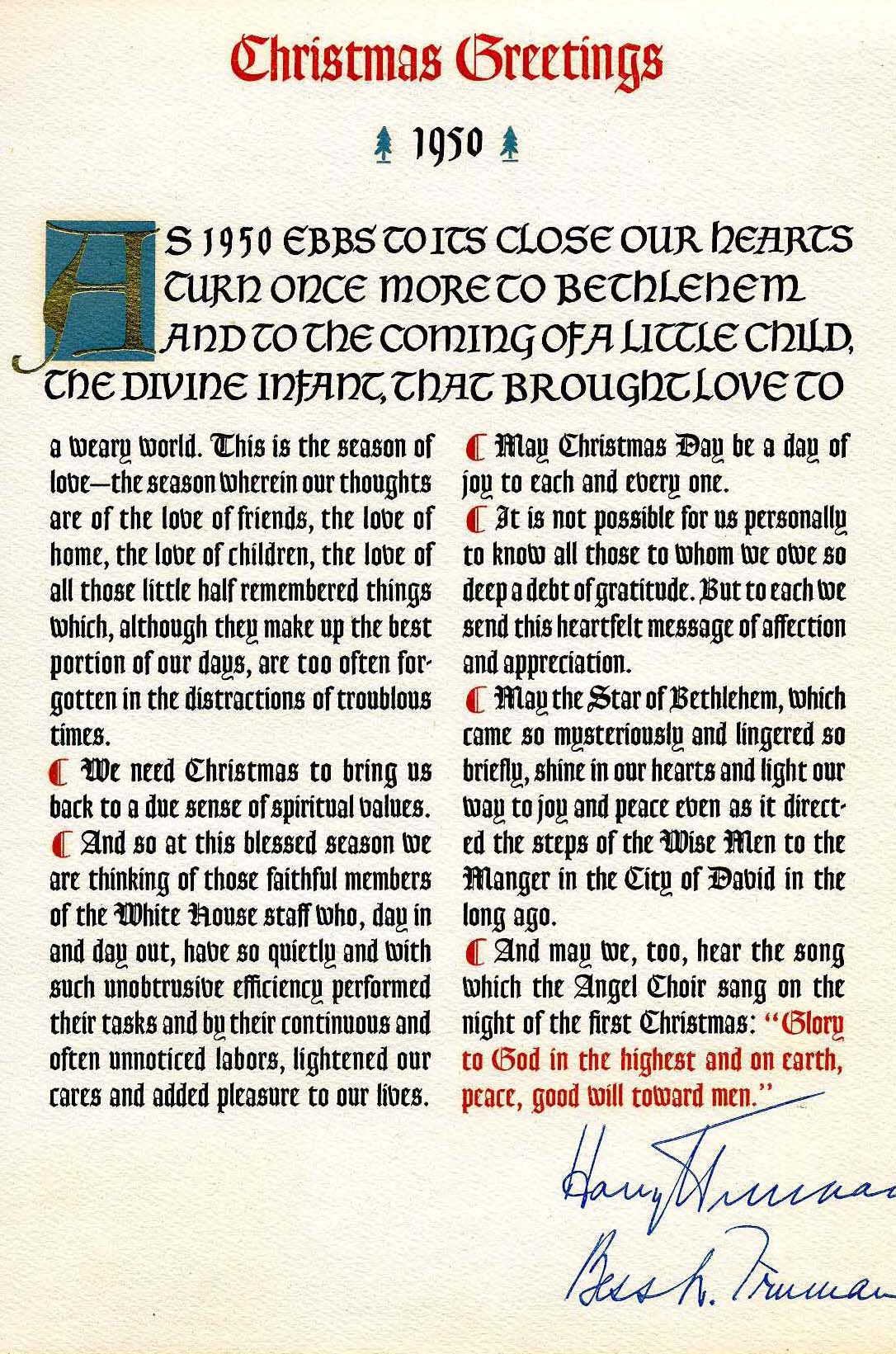
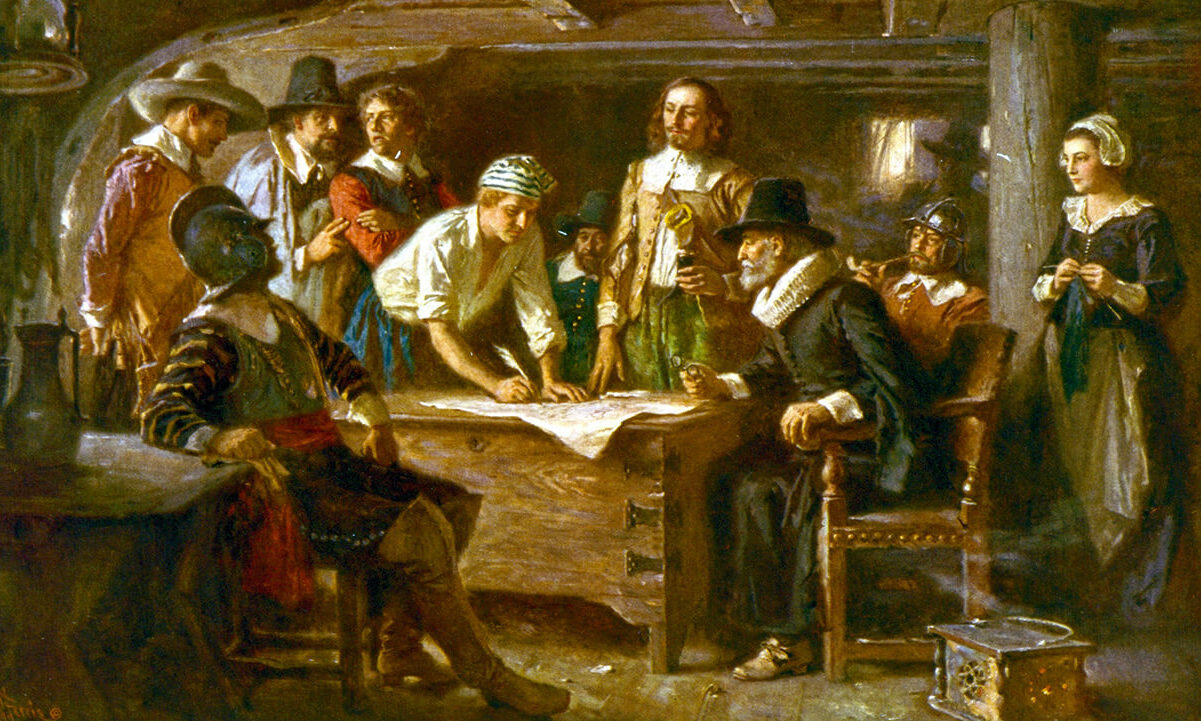
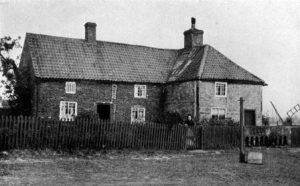
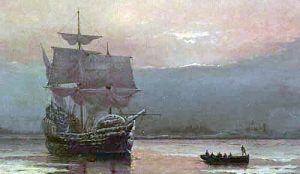 At 30 years of age, William Bradford and his wife Dorothy left behind their 4 year-old son to make the perilous journey, along with 100 other congregation members.
At 30 years of age, William Bradford and his wife Dorothy left behind their 4 year-old son to make the perilous journey, along with 100 other congregation members. 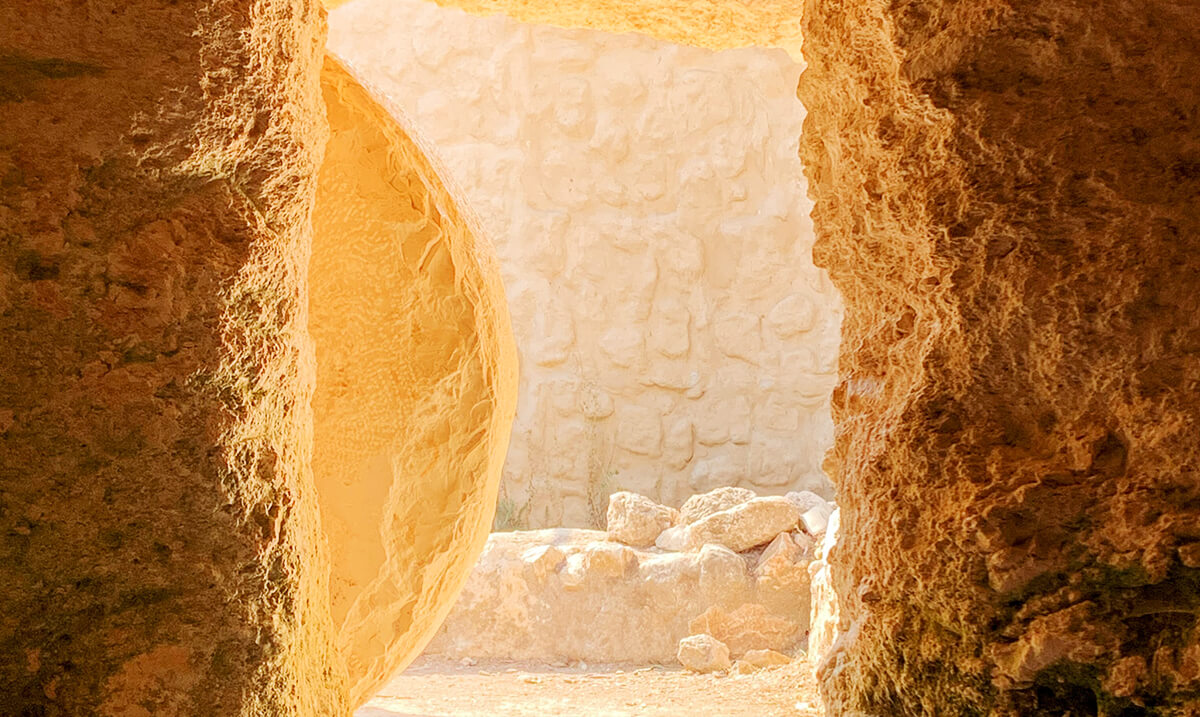
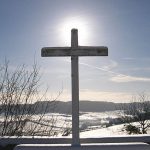 Easter is celebrated across the world as one of the most significant Christian holy days. It is when Christians pause to remember the great sacrifice of Jesus on the cross as well as the ultimate triumph of His resurrection.
Easter is celebrated across the world as one of the most significant Christian holy days. It is when Christians pause to remember the great sacrifice of Jesus on the cross as well as the ultimate triumph of His resurrection.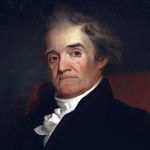 As Noah Webster, author in 1828 of America’s
As Noah Webster, author in 1828 of America’s 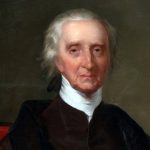 The approaching festival of Easter, and the merits and mercies of our Redeemer copiosa assudeum redemptio have lead me into this chain of meditation and reasoning, and have inspired me with the hope of finding mercy before my Judge, and of being happy in the life to come — a happiness I wish you to participate with me by infusing into your heart a similar hope.
The approaching festival of Easter, and the merits and mercies of our Redeemer copiosa assudeum redemptio have lead me into this chain of meditation and reasoning, and have inspired me with the hope of finding mercy before my Judge, and of being happy in the life to come — a happiness I wish you to participate with me by infusing into your heart a similar hope.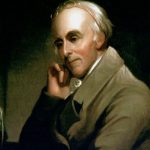 He forgave the crime of murder on His cross; and after His resurrection, He commanded His disciples to preach the gospel of forgiveness, first at Jerusalem, where He well knew His murderers still resided. These striking facts are recorded for our imitation and seem intended to show that the Son of God died, not only to reconcile God to man but to reconcile men to each other.
He forgave the crime of murder on His cross; and after His resurrection, He commanded His disciples to preach the gospel of forgiveness, first at Jerusalem, where He well knew His murderers still resided. These striking facts are recorded for our imitation and seem intended to show that the Son of God died, not only to reconcile God to man but to reconcile men to each other.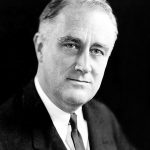 Yesterday, Christendom celebrated Easter—the anniversary of the Resurrection of Our Lord Who, at the beginning of His ministry was thirty years of age and at His death was only thirty-three. Christianity began with youth, and through the last two thousand years, the spirit of youth repeatedly has revitalized it.
Yesterday, Christendom celebrated Easter—the anniversary of the Resurrection of Our Lord Who, at the beginning of His ministry was thirty years of age and at His death was only thirty-three. Christianity began with youth, and through the last two thousand years, the spirit of youth repeatedly has revitalized it.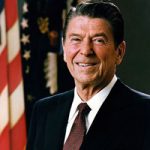 Beginning today and culminating on Sunday morning, Christians will celebrate with their families the resurrection of Christ, His victory over death. We will remember that He gave His body and His blood—washing clean the faults and the shortcomings of the world. In our rejoicing we will renew the hope that is ours through the risen Lord.
Beginning today and culminating on Sunday morning, Christians will celebrate with their families the resurrection of Christ, His victory over death. We will remember that He gave His body and His blood—washing clean the faults and the shortcomings of the world. In our rejoicing we will renew the hope that is ours through the risen Lord.